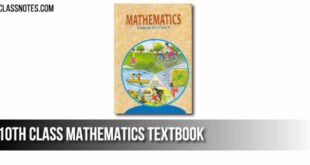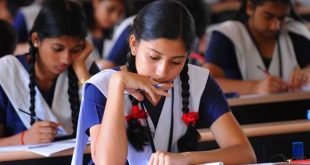Question: What is the barter system and double coincidence of wants?
Answer: In the olden days, when modern currency was not in vogue, people had to sell and buy each others commodities. This was called the barter system. For instance if a shoe manufacturer wants to buy wheat, he has to find a farmer who wants to buy his shoes in exchange for the wheat. That is, both parties have to agree to sell and buy each others commodities. This is known as double coincidence of wants. In a barter system where goods are directly exchanged without the use of money, double coincidence of wants is an essential feature.
Question: What are ‘demand deposits’?
Answer: People need only some money for their day-to-day needs. So, people deposit the extra money with the banks by opening a bank account in their name. Banks accept the deposits and also pay an interest rate on the deposits. In this way people’s money is safe with the banks and it earns an interest.
People also have the provision to withdraw the money as and when they require. Since the deposits in the bank accounts can be withdrawn on demand, these deposits are called demand deposits.
Question: Write a short note on ‘cheques’.
Answer: A deposit in a Bank offers the customer the facility of issuing cheques. A cheque is a paper instructing the bank to pay a specific amount from the person’s account to the person in whose name the cheque has been made. The recipient of the cheque can deposit it in his own account in his bank. The money is transferred from one bank account to another bank account in a couple of days. The transaction is complete without any payment of cash. This is a safe mode of transferring money avoiding the possibility of any theft.
Question: Write about the functioning of Krishak Cooperative Society.
Answer: Krishak Cooperative functions in a village not very far away from Sonpur. It has 2300 farmers as members. The Cooperative accepts deposits from its members. Using the deposit as collateral, the Cooperative obtains a large loan from the bank. The loan amount received from the bank is used as funds to provide loans to the members.
Once the members repay the loans the amount is repaid to the bank and a fresh loan is taken from the bank. The Cooperative provides loans to its members for the purchase of agricultural implements, loans for cultivation and agricultural trade, fishery loans, loans for construction of houses and for a variety of other expenses.
Question: In situations with high risks, credit might create further problems for the borrower. Explain?
Answer: Whether a credit would be useful or not, will depend on a number of factors like – risks involved, whether there is some support against a loss, terms of credit etc. It is a fact that in situations with high risks, credit might create further problems for the borrower. For example, credit taken by farmers for cultivation might create problems for the farmer at some times. Crop production involves high costs on inputs such as HYV seeds, fertilizers, pesticides, irrigation etc. Farmers generally take loans at the beginning of the season and repay the loan after harvest. But the failure of the crop makes loan repayment impossible. Then in order to repay the loan sometimes, they become bound to sell part of their land. So, their situations become worse than before. The incidences of farmers’ suicides especially in Maharashtra are the burning examples of this situation.
Thus, whether a credit would be useful or not, depends on the various risks involved in the situation.
Question: How does money solve the problem of double coincidence of wants? Explain with example of your own.
Answer: In a barter system where goods are directly exchanged without the use of money, double coincidence of wants is an essential feature. By serving as a medium of exchanges, money removes the need for double coincidence of wants and the difficulties associated with the barter system. For example, it is no longer necessary for the farmer to look for a book publisher who will buy his cereals at the same time sell him books. All he has to do is find a buyer for his cereals. If he has exchanged his cereals for money, he can purchase any goods or service which he needs. This is because money acts as a medium of exchange.
 Class Notes NCERT Solutions for CBSE Students
Class Notes NCERT Solutions for CBSE Students





